detail profile jos c3 a9 carreras
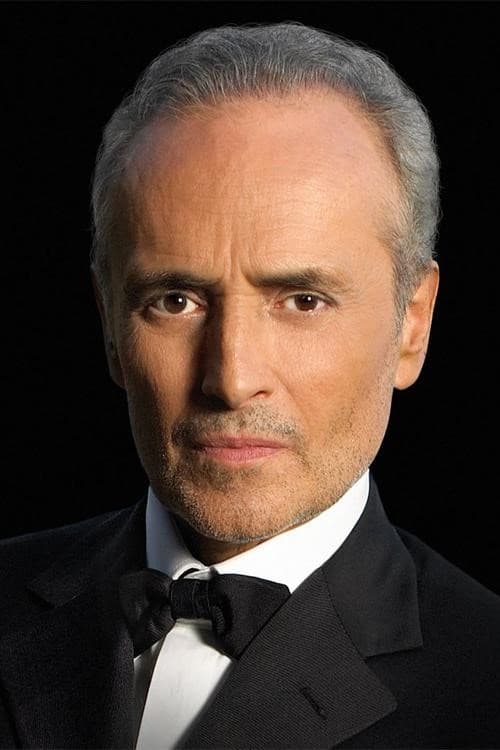
Riwayat Hidup
Josep Maria Carreras Coll (Catalan: [ʒuˈzɛb məˈɾi.
ə kəˈreɾəs ˈkɔʎ]; born 5 December 1946), better known as José Carreras (/kəˈrɛərəs/, Spanish: [xoˈse kaˈreɾas]), is a Spanish operatic tenor who is particularly known for his performances in the operas of Donizetti, Verdi and Puccini.
Born in Barcelona, he made his debut on the operatic stage at 11 as Trujamán in Manuel de Falla's El retablo de Maese Pedro, and went on to a career that encompassed over 60 roles, performing in the world's leading opera houses and on numerous recordings.
He gained fame with a wider audience as one of the Three Tenors, with Plácido Domingo and Luciano Pavarotti, in a series of large concerts from 1990 to 2003.
He is also known for his humanitarian work as president of the José Carreras International Leukaemia Foundation (La Fundació Internacional Josep Carreras per a la Lluita contra la Leucèmia), which he established following his own recovery from the disease in 1988.
Carreras was born in Sants, a working-class district in Barcelona.
He was the youngest of Antònia Coll i Saigi and Josep Carreras i Soler's three children.
In 1951, his family emigrated to Argentina in search of a better life.
However, this move abroad proved unsuccessful, and within a year they had returned to Sants where Carreras was to spend the rest of his childhood and teenage years.
He showed an early talent for music and particularly singing, which intensified at the age of six when he saw Mario Lanza in The Great Caruso.
The story recounted in his autobiography and numerous interviews is that after seeing the film, Carreras sang the arias incessantly to his family, especially "La donna è mobile", often locking himself in the family's bathroom when they became exasperated with his impromptu concerts.
At that point, his parents, with the encouragement of his grandfather Salvador Coll, an amateur baritone, found the money for music lessons for him.
At first he studied piano and voice with Magda Prunera, the mother of one of his childhood friends, and at the age of eight, he also started taking music lessons at Barcelona's Municipal Conservatory.
At just eight years old, he also gave his first public performance, singing "La donna è mobile", accompanied by Magda Prunera on the piano, on Spanish National Radio.
A recording of this still exists and can be heard on the video biography, José Carreras – A Life Story.
On 3 January 1958, at the age of eleven, he made his debut in Barcelona's great opera house, the Gran Teatre del Liceu, singing the boy soprano role of Trujamán in Manuel de Falla's El retablo de Maese Pedro.
A few months later, he sang for the last time as a boy soprano at the Liceu in the second act of La Bohème.
Throughout his teenage years, he continued to study music, moving on to the Conservatori Superior de Música del Liceu and taking private voice lessons, first with Francisco Puig and later with Juan Ruax, whom Carreras has described as his "artistic father".
Following the advice of his father and brother, who felt that he needed a "backup" career, he also entered the University of Barcelona to study chemistry, but after two years he left the university to concentrate on singing.
.
.
.
Source: Article "José Carreras" from Wikipedia in English, licensed under CC-BY-SA 3.
0.
Info Pribadi
Peran Yang Di Mainkan José Carreras
 Journey to the Teatro del Silenzio...
Journey to the Teatro del Silenzio...Andrea Bocelli 30: The Celebration 2024
Journey to the Teatro del Silenzio (Theater of Silence), Lajatico, where once-in-a-lifetime performances showcase the Maestro’s extensive and beloved repertoire, alongside captivating duets with an unprecedented cast of global superstars, including Ed Sheeran, Shania Twain, Will Smith, Jon Batiste, Sofia Carson, Lang Lang, Nadine Sierra and more. With extraordinary staging, production, and visuals, set against a landscape of unparalleled beauty amongst the Tuscan hills, Andrea Bocelli’s sensational career comes to life in a truly unforgettable experience.
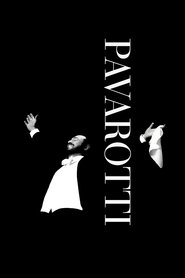 Featuring neverbeforeseen footage concert performances and...
Featuring neverbeforeseen footage concert performances and...Pavarotti 2019
Featuring never-before-seen footage, concert performances and intimate interviews, filmmaker Ron Howard examines the life and career of famed opera tenor Luciano Pavarotti.
 The Three Tenors began their collaboration...
The Three Tenors began their collaboration...The Three Tenors - The Lost Concerts 2017
The Three Tenors began their collaboration with a performance at the ancient Baths of Caracalla in Rome, the eve of the 1990 FIFA World Cup Final. Following the big success of the 1990/1994 concerts, The Three Tenors opened a world tour of 31 concerts, the last one in 2003. Seven of these 31 concerts had been recorded for TV but disappeared somewhere in London. All attempts to bring back these invaluable recordings to the audience failed. Now, after all these years, C Major in cooperation with Three Tenors Ltd. managed to assemble the most beautiful moments of six lost concerts in Munich, Tokyo, London, Vienna, New York and Pretoria.
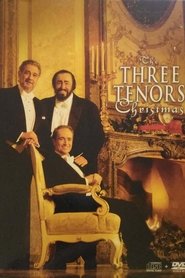 The Three Tenors capture the joy...
The Three Tenors capture the joy...The Three Tenors Christmas 1999
The Three Tenors capture the joy and spirit of the season with their first ever Christmas concert, live from Vienna, featuring performances of international seasonal favorites by the best-selling and world-renowned trio. Enjoy the gifts of The Three Tenors and be part of the holiday event of the year.
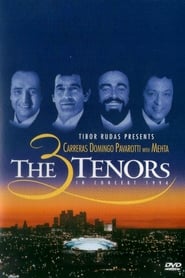 Its not opera its not a...
Its not opera its not a...The 3 Tenors in Concert 1994 1994
It's not opera; it's not a pop concert; it's not Broadway. It's all of these and none of them. Once you accept the fact that this sequel to the original blockbuster concert recording is less about music and more about entertainment and the power of musical personalities, you can appreciate what you're hearing as an event--phenomenal and bizarre, momentous and frivolous. This is an occasion to celebrate the voices and egos of three huge superstars, and to have fun listening as Luciano Pavarotti, Placido Domingo, and Jose Carreras interact, bouncing lines off each other and playing to the overwhelmingly enthusiastic audience.
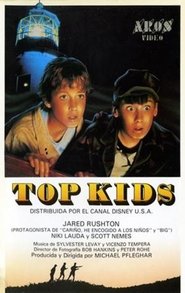 A fun journey through the history...
A fun journey through the history...Top Kids 1987
A fun journey through the history of the automobile, this film is about a group of future computer hackers that wire an arcade game to work as a time machine. Among appearances in the movie are Henry Ford, Mercedes Benz, and modern race car driver Niki Lauda, as one of the boys becomes trapped within the newly created game.
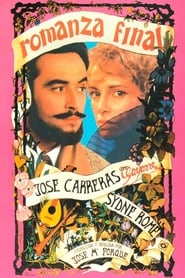 Biography of Julian Gayarre 18441890 one of...
Biography of Julian Gayarre 18441890 one of...Romanza final (Gayarre) 1986
Biography of Julian Gayarre (1844-1890), one of the best tenors of all times. At 19, a professor at the Conservatory of Music in Madrid heard him singing for the first time and offered him a scholarship to continue his studies. His artistic life runs between continued success, becoming the world's greatest tenor. But in 1890, while singing at the Teatro Real in Madrid, a failure in his voice is like a cruel reminder of what would happen a few days later: his death at a young age. The doctors gave a diagnosis, but his friends know that Julian Gayarre died because he could not sing anymore.
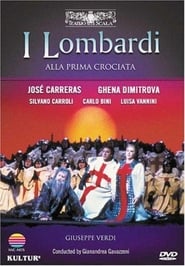 Set during the Crusades the story...
Set during the Crusades the story...I Lombardi alla Prima Crociata 1984
Set during the Crusades, the story of Lombardi opens with the rivalry of two brothers -- Arvino and Pagano -- who vie with one another for the love of Viclinda. Pagano attempts to kidnap Viclinda and commit a fratricide, extinguishing Arvino, but succeeds only in murdering his father in error; circumstances force him into exile in the Holy Land. Thus begins a complex and harrowing series of events that will ultimately lead to the reconciliation of both men, followed by the death of one.
 La Bohme is one of Giacomo...
La Bohme is one of Giacomo...Puccini: La bohème 1982
"La Bohème" is one of Giacomo Puccini's most popular and timeless works and the second-most performed opera at New York's Metropolitan Opera. This production, directed by the legendary Franco Zeffirelli, features José Carreras, Teresa Stratas, Renata Scotto and Richard Stilwell. The opera is replete with extraordinary visual beauty as it presents the tragic story of young bohemians struggling to make it in the world.
 Northern Lights is a live album...
Northern Lights is a live album... Christmas in Vienna is a 1993 concert...
Christmas in Vienna is a 1993 concert...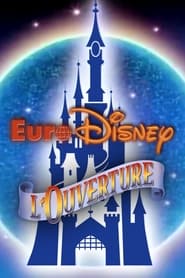
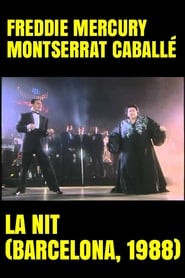 Mercury and Caball singing Barcelona on...
Mercury and Caball singing Barcelona on...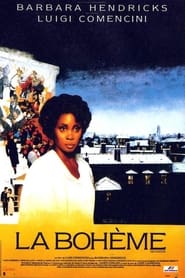 The film tells the story of...
The film tells the story of...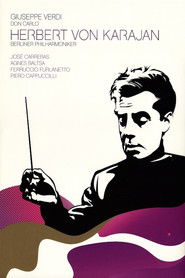 A live performance of Giuseppe Verdis...
A live performance of Giuseppe Verdis...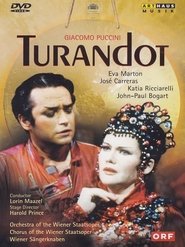 Maazel conducts this production from Vienna...
Maazel conducts this production from Vienna...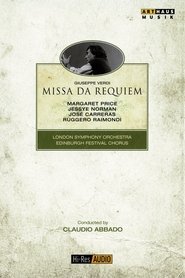 Live performance of Verdis Missa da...
Live performance of Verdis Missa da...